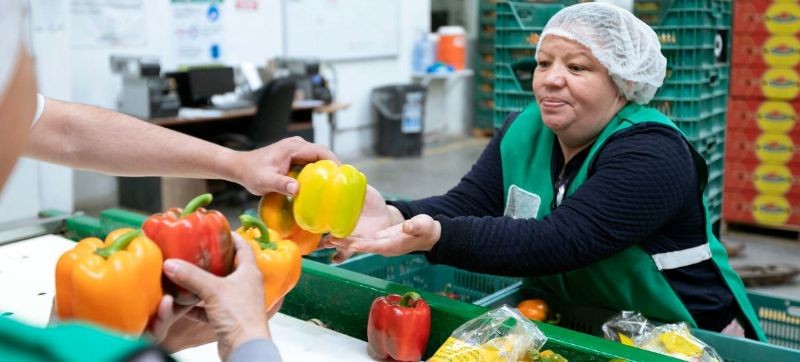 ILO
ILO
Geopolitical tensions, rising costs of climate change, unresolved debt issues putting labour markets under pressure, shows ILO report
Geopolitical tensions, the rising costs of climate change and unresolved debt issues are putting labour markets under pressure, according to a new report from the International Labour Organization (ILO) published on Thursday.
The newly released World Employment and Social Outlook: Trends 2025, sheds light on the deceleration of the global economy. This is impacting labour markets and stalling progress on recovery from previous economic downturns.
In 2024, global employment expanded in line with a growing labour force, keeping the unemployment rate steady, similar to the previous year.
On the other hand, young people continued to face much higher unemployment rates with few signs of improvements.
Informal work and those categorised as the working poor, returned to pre-pandemic levels, and low-income countries faced the most difficulties in creating decent jobs for their citizens.
Recovery challenges
In 2024, the global economy continued to expand at a moderate rate, slowing as the end of the year beckoned. This moderate growth is expected to continue through 2025 and over the medium term.
Although inflation rates came down, the economy has not fully caught up with the pandemic-related loss of earnings, in part because of weak employment growth.
Real wages, the report notes, have only increased in some advanced economies – and most countries are still recovering from the aftermath of the past crises.
Labour force participation in decline
Participation in the labour force has dropped in low-income countries while continuously increasing in high-income nations – mainly among older workers and women.
Still, gender gaps remain wide, with fewer women in the workforce, limiting progress in living standards.
Participation has fallen sharply among young men with many losing out on education, employment or training (NEET) programmes, leaving them vulnerable to economic challenges.
While this is especially pronounced in low-income countries, with a similar trend for young women, the pattern persisted worldwide.
The global jobs gap - the estimated number of people who want to work but do not have a job - reached 402 million in 2024.
This includes 186 million unemployed, 137 million who are temporarily unavailable to work and 79 million discouraged workers who have stopped looking for jobs.
Against a gradual decline in labour force participation, the jobs gap has continued its pre-pandemic downward trend but is expected to stabilise over the next two years.
New opportunities in green and digital sectors
The study identifies potential for job growth in green energy and digital technologies.
Renewable energy jobs have grown to 16.2 million worldwide, driven by investment in solar and hydrogen power. However, these jobs are unevenly distributed, with nearly half based in East Asia.
Digital technologies also offer opportunities, but the report notes that many countries lack the infrastructure and skills to fully benefit from these advancements.
Innovative solutions
The ILO Director-General, Gilbert Houngbo, stressed the urgent need for action.
“Decent work and productive employment are essential for achieving social justice and the Sustainable Development Goals (SDGs),” he said.
The report recommendations include boosting productivity by investing in skills training, expanding social protection and encouraging the use of private funds towards supporting local development in low-income countries.
“To avoid exacerbating already strained social cohesion, escalating climate impacts and surging debt, we must act now to tackle labour market challenges and create a fairer, more sustainable future,” concluded Houngbo.
Support Our Journalism
We cannot do without you.. your contribution supports unbiased journalism
IBNS is not driven by any ism- not wokeism, not racism, not skewed secularism, not hyper right-wing or left liberal ideals, nor by any hardline religious beliefs or hyper nationalism. We want to serve you good old objective news, as they are. We do not judge or preach. We let people decide for themselves. We only try to present factual and well-sourced news.







